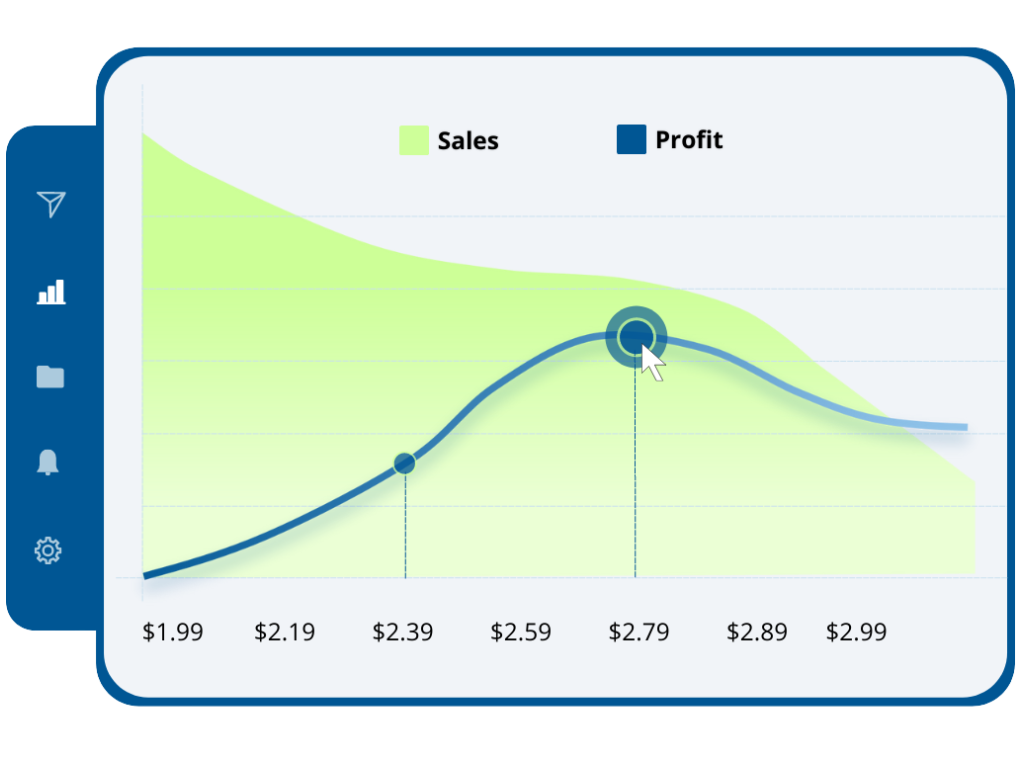January 20, 2023
Let‘s Democratize Pricing Insights


We pack 15 notebooks with conjoint software installed in Eckhard’s Mercedes SL 500 and head off to a focus group event in Cologne. Despite having a five-man crew on our side, I see us fully loaded and speeding down the autobahn at 250 kph.
I am very impressed by how confidently Eckhard manages the focus group and motivates the guests to “torture” themselves through the conjoint questionnaire.
The following day, I set to work on the analysis. I collect the data and import everything into the Sawtooth software.
“Mmmh, wait a minute. Demand is going up at this higher price?” is the thought that pops into my head. My project manager, Steve, explains that we need to correct this manually. “Expert Judgement is the name of the process when you use prior knowledge to correct statistical results,” he clarifies.
Three months later, we are sitting in the presentation of the results at this renowned brand. The customer is satisfied and several hundred thousand Euros lighter.
From today’s perspective, we had achieved the best possible results at the time and made the best possible recommendation.
With today’s methods, however, companies can …
… receive significantly more valid recommendations (generating millions or billions in additional revenue);
Wow! Why is that? “Today, as in the past, the gold standard is conjoint analysis, right?” you might think. “Not much has changed there, has it?”

Thanks to AI, digitalization, cloud technologies as well as neuroscience, a lot has changed and evolved exponentially… Yet most professionals are still unaware of it.
Welcome to the age of PRICING INTELLIGENCE.
No matter what pricing strategy you design, there is no getting around the one central question: What is the customer willing to pay for an offer?
The question can either be derived from actual sales figures, or it requires a customer survey. Only in rare cases, such as in e-commerce of the same or similar products, can the problem be abbreviated by crawling competitor prices and so-called dynamic pricing.
Data on actual sales figures are not available for most companies. Therefore, classic price modeling software cannot help them. Sales data is missing in cases like
In all of these cases, a customer survey needs to shed light.
What are the options?
There are direct survey methods like Garbor Granger or Van-Westendorp. In theory, these are easy to set up and carry out. However, the interpretation requires experience. Furthermore, the validity of the results is not always optimal.
Furthermore, there are various variations of so-called conjoint measurement surveys. They have been developed to measure the importance of product features. Price is treated as a product feature.
From the point of view of brand managers, according to the study “The State of Pricing 2022“, the existing methods have four central problems
EXPERT OWNED:
Brand managers do not see themselves as capable of setting up and interpreting pricing insights. This is especially true for conjoint studies. As a result, internal or external experts have to be called in.
SLOW:
This involvement of experts delays the process enormously. Studies take weeks or months, not days, as would actually be possible.
EXPENSIVE:
The expertise and considerable “manual” effort lead to high costs. Projects cost five figures instead of three.
VALIDITY:
Experienced experts usually know the weak points and that the methods mentioned above only provide an approximation and often enough need an “Expert Judgement” correction.

So conventional methodologies are expert-owned, slow, expensive, and have weaknesses in validity.
What if a methodology was developed that took the latest Neuroscience with Artificial Intelligence research and processed it in such a way that it accurately measured willingness to pay, making it accessible in a straightforward process, fully automated, and available online for everyone to use?

The good news is that all of this exists today.
Implicit Pricing Intelligence, for example, is going down this path. Here’s how to democratize your company’s pricing:
Step 1 – Lay the groundwork as a team: The idea is to empower brand or product management teams, pricing experts, innovation teams, or anyone else responsible for a product and its pricing to take ownership of pricing. What is needed are just a few basics of Value Bases Pricing.
Step 2 – Pilot: “Test, Learn, Repeat” is a process in which companies make agile progress. So it’s a matter of creating an initial successful case that makes everyone want to do more.
Step 3 – Roll out: In continuous application, entirely new uses emerge. For example, companies use new methods for continuous price maintenance or measure the brand value of the company better than ever before through the price premium.

Today pioneers use the latest pricing survey tools that use Neuroscience + AI
Interested professionals can use some tools even for free and explore on its own
You can access supra tools free here.
The democratization of pricing is about empowering every product owner to optimize their pricing online.
If the research method is working and the selection of it is no longer complicated, pricing suddenly becomes orders of magnitude better because those responsible take it into their own hands.
We are thus breaking down know-how silos and handing over research to the person who knows the product and its customers best: the product owner or the company’s pricing champion.
The new technologies are also leading to democratization in market research agencies. Today, pricing methods are only mastered by a few experts in the company. In the future, every pricing project will be faster, cheaper, and, above all, better.
At the same time, classic methods will continue to have their rationale for existence. Instead, they will be used in the future, where they can really unfold their advantages.
In my email newsletter “Pricing Insights” I cover the whole range of pricing insights solutions-from Garbor Granger to Conjoint, from NeuroPricing to Pricing Software Systems. I describe the application in various fields from new product pricing to promotion, from brand premium to feature pricing.
Keep up to date here.